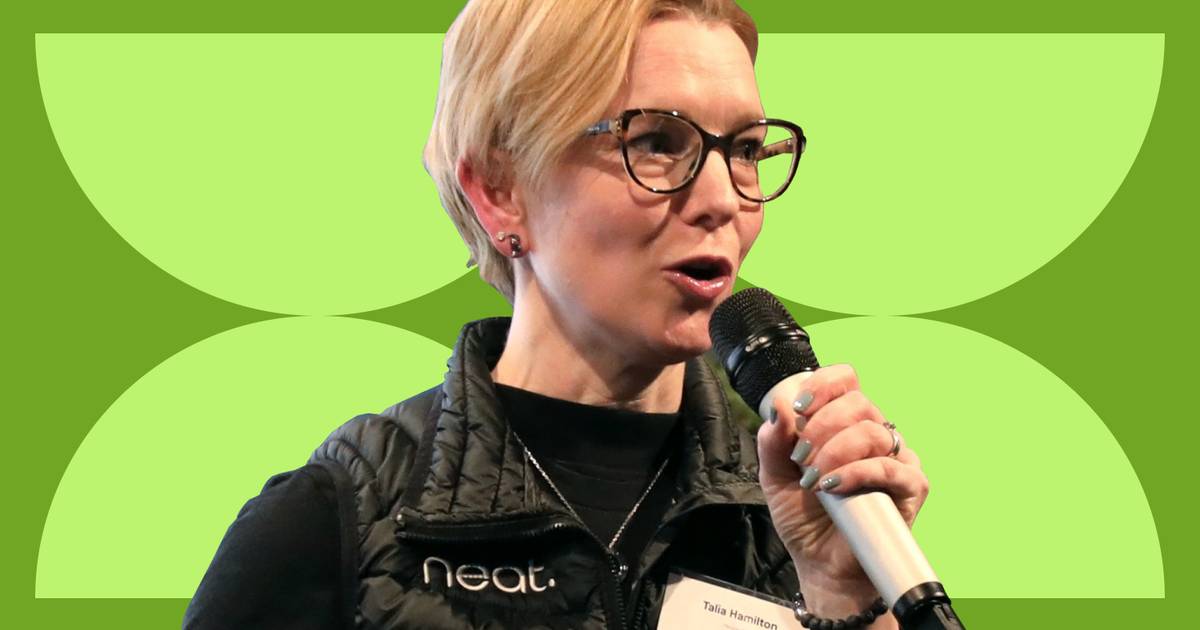
Most recruiters are familiar with the arduous process of finding the perfect candidate for a role. But how many have turned down a frontrunner?
Before leading talent acquisition at video conference tech company Neat, Talia Hamilton worked as a recruiter in several sectors, including staffing and tech, at companies such as Google. In staffing, she found herself in that scenario.
“I have told people to not take roles before if I don’t think it’s going to be right for them,” Hamilton told HR Brew, later adding, “We’re not selling space here. This is somebody’s life and well-being.”
She recalled one such situation, when it was down to the top two candidates. One had a stable job, family to care for, and more to lose if the company failed, while the other was more “free-spirited.”
“I was honest with both candidates, and whereas with one it was like, ‘Well, either way, it’s going to be fun and it’s a party.’ For the other candidate, it was not that mindset at all,” she said. She told the client the same.
“I think it was the right thing to do,” she added. “It’s trying to do right by all parties, and being a bit diplomatic in that respect.”
This conversation has been edited for length and clarity.
What’s the best change you’ve made at a place you’ve worked?
Centralizing all of Neat’s recruitment efforts, eliminating hiring silos, and ensuring a direct recruitment model.
At the end of this year, we did use an agent, but we used an agency for [six] hires…So out of 125 hires [last year], we [had a] 97% direct hiring model, which I think by anyone on standards is really good. All that means is that we are trying to avoid using agencies wherever we possibly can. I worked on the agency side for many years. I have a huge amount of respect for people that work that side. However, when you are undertaking your own recruitment efforts, you build out a network every time you hire a role. There’s [candidates] not interested right now, but they might be in the future when you’re head hunting, and that’s how you start to build out those niche networks in certain regions and certain disciplines. Every time you go out to an agency, you’re not going to be able to attain any of that information.
Quick-to-read HR news & insights
From recruiting and retention to company culture and the latest in HR tech, HR Brew delivers up-to-date industry news and tips to help HR pros stay nimble in today’s fast-changing business environment.
What’s the biggest misconception people might have about your job?
That recruitment is easy. Having started my career in advertising sales, I will never forget moving to recruitment and the first time a candidate rejected an offer. In my mind, the hire was already complete, and it was a lesson in how many more variables there are when dealing with people rather than products or services. The reality of the logistics of relocating for a new position, the emotions that come with someone leaving a role for something new—you have to become much more attuned to the potential risks and get to know the candidate well enough to understand their motivations. I recently completed my MSc in organizational psychology, which I wanted to study to better understand what makes people tick when it comes to their work.
What trend in HR are you most optimistic about? Why?
The focus on widening talent networks, and opening the scope to hiring different types of people. My son has additional needs and seeing how the workforce continues to expand in inclusivity gives me hope that there will be a bright future for him. I think the conversations that have opened up in recent years about privilege and bias are extremely important to appreciate where people’s starting points may be and how we can better facilitate support. Questioning our own opinions on things and calling ourselves out on potential bias, which is essentially operating with empathy, is essential.
What trend in HR are you least optimistic about? Why?
As someone with invisible disabilities, which I need to carefully manage, I have felt disappointed with the enforced return to office policies implemented by some companies. Speaking with members of the disabled community, this is a wide-felt frustration and honestly was not expected to be seen as such a strong 180 in some cases. I feel incredibly fortunate to work for a company like Neat, that enables us to work wherever and however to do our best. This setup is completely different for each individual regardless of circumstance and the requirements of each role also greatly vary. Prescribing a rigid timetable to people’s schedules is not always the best way to optimize productivity. Neat’s products enable an in-person feeling regardless of physical setup, and being part of that movement is something I am proud of.










